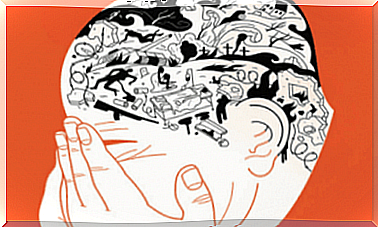Social Expectations: How They Arise And Affect Us

Every day we deal with many people, some we know well and some we don’t. And we get an idea of their personality, which we create based on the interactions they have had. Which leads us to generate a series of social expectations about the behavior of each of them.
Social psychology has dealt extensively with the study of expectations, and thanks to this, we know that they are closely related to the impressions we have of others. So, first of all, let’s talk about our social perception.
Social perception
Human beings, born without the resources to be independent, need complex social relationships. The the brain, therefore, is ready to perceive and evaluate our social environment. A very important aspect of controlling our relationships is knowing what the people who make up our social environment are like. And this is where social perception comes into play.
A simple and interesting model to explain this phenomenon is Fiske’s model of social perception. According to this model, as soon as we know a person, we put them in a category. And it will stay there unless we deepen the relationship and discover something that leads us to change it.
If we are interested, we will check if your behavior conforms to that category; otherwise, we will proceed with adaptations or changes to the category until we have categorized or conceptualized the person correctly.

This is a very important process without which managing our relationships would be much more complicated. However, it is important to note that this is a simple and useful process, but not an accurate one. People have a complex personality, strongly interconnected with the context and difficult to include within specific categories. This little “mental shortcut”, however, is useful for us to know how to treat people in our immediate environment.
Once we have categorized our social environment and formulated ideas about each person in it, we will begin to have social expectations. But what exactly are social expectations?
Social expectations
Social expectations are ideas we have of a person in our social environment, of how they will behave in the future or being in a certain circumstance. The image we create of a person is accompanied by these expectations. This helps us imagine how we should behave and predict its behavior.
Creating social expectations about our relationships has an adaptive function. It’s easy enough to guess what it is. In an artificial environment that is based on complex societies such as those in which most of us live, predicting the behavior of others allows us to adapt our own and, therefore, to greatly benefit from social interactions. Even if it is not a precise process, making a small prediction, sometimes wrong, is always better than not doing it or never getting it right.
It is important to know that these social or behavioral expectations greatly influence our attitude. We don’t treat all people the same, and we don’t even treat the same person the same in different situations. We can observe it in various everyday situations.
We also try to induce others to meet our social expectations by indirectly forcing them or by altering our perception of their actions. It is, however, a bilateral process: being aware of the expectations that others have, we will adapt our behavior to suit their ideas.
A little reflection
Our life is full of social expectations, both ours towards others and others towards us. So in order for our relationships to be comfortable, we tend to try to meet these expectations, since not doing so could give space to uncertainty and, therefore, anxiety. We must bear in mind that this is not a precise process, so many times these expectations will not be met.
Failing to create an expectation leads to three situations : (a) the person on whom the expectation rests changes their behavior to fit, (b) the person who creates the expectation changes their perception to believe the other fits his expectation, and (c) breaks the correlation between expectation and behavior, and is treated as an error.

Although the first two options avoid social conflict and lead to maintaining a relationship initially, it is also that in the long term they can cause serious problems. This is due to the fact that in the first option the person changes his behavior to satisfy the other, which leads him to get the wrong idea of what the person really is. With the second option, the person creating the expectation unconsciously deludes himself with an altered image of the other person.
The third option is the one that causes the most anxiety due to the lack of control over what happened. However, if the relationship overcomes or accepts this anxiety, it will become more stable. It is possible that in momentary relationships (for example, one with a neighbor), the first two options are correct, because there is no long-term relationship, nor a close bond. But it would be a grave fault to do so in our deepest relationships.
And you, on the other hand, how do you seem to behave in relation to your social expectations? And how would you like to behave?









